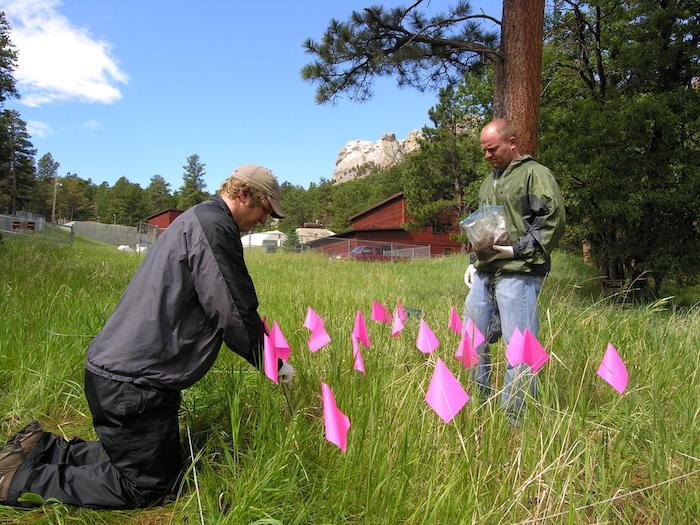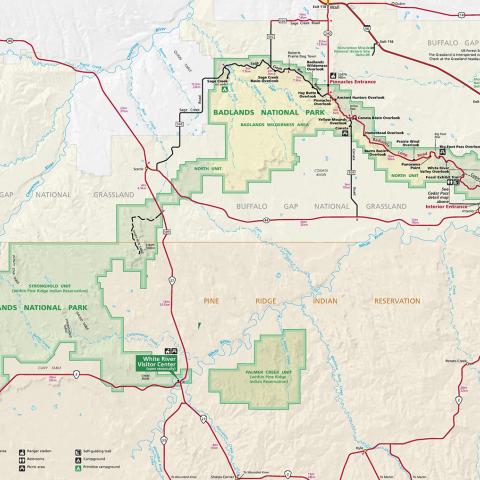
USGS scientists collect composite soil samples at Mount Rushmore National Memorial/USGS
Both surface and groundwater at Mount Rushmore National Memorial in South Dakota were probably polluted with a chemical common to rocket fuels and explosives by past fireworks displays, according to a U.S. Geological Survey report.
At high levels in drinking water the chemical, perchlorate, can interfere with the function of the human thyroid gland, a USGS release said. However, the drinking water at Mount Rushmore meets current regulations and is safe for public consumption.
Aerial fireworks displays took place at the memorial around the 1998-2009 Independence Days. The USGS and National Park Service studied perchlorate and metals associated with fireworks in 106 water and 11 soil samples taken from Mount Rushmore during 2011-2015. Perchlorate concentrations were greatest in samples collected from the northeast side of the memorial, and the scientists found perchlorate in soil where the fireworks were launched and where the debris landed.
“The lack of alternative perchlorate sources in the area, such as a military site or agricultural land with applied fertilizers, and the presence of firework debris suggest that past fireworks are the perchlorate source,” said Galen Hoogestraat, a USGS scientist and the lead author of the report. “Our results can help park managers protect water quality at this iconic national landmark.”
The main findings include:
* A maximum perchlorate concentration of 54 micrograms per liter (µg/L) measured in a stream sample, and 38 µg/L measured from a groundwater well. In contrast, all groundwater and stream samples collected from sites outside the memorial boundary had perchlorate concentrations less than 0.2 µg/L.
* Concentrations of metals in water samples were similar at sites within and outside the memorial, indicating little evidence of metal contamination due to human-made factors.
* Dynamite that was used to blast the memorial in the 1930s is not a likely source of the perchlorate because perchlorate is not a component of dynamite formulations.
Drinking water is provided to about 3 million visitors to the memorial every year and to year-round park personnel. Perchlorate in drinking water is not currently regulated by the U.S. Environmental Protection Agency, but the park has planned for additional voluntary monitoring and treatment.
“The park will continue to strive to provide safe drinking water that meets and exceeds current standards,” said Mount Rushmore Superintendent Cheryl Schreier.



 Support Essential Coverage of Essential Places
Support Essential Coverage of Essential Places






